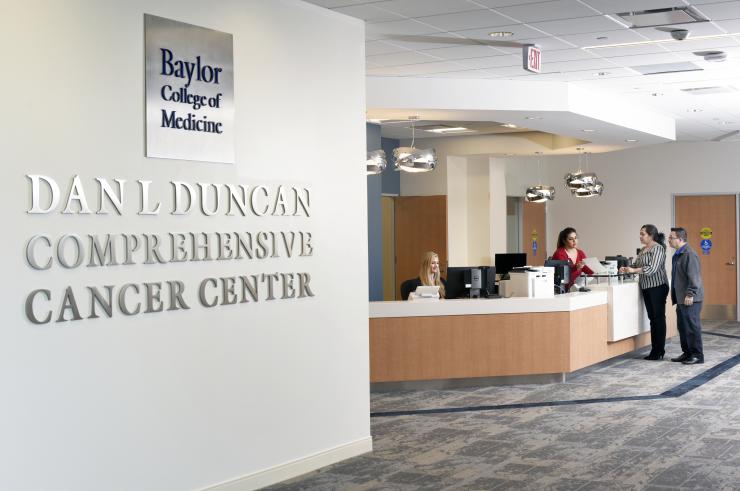About the Program
Prevention of HCC Related to Metabolic Syndrome was awarded to our researchers by the National Cancer Institute in 2022 with the goal of reducing the burden of liver cancer in patients with metabolic dysfunction.
Hepatocellular carcinoma (HCC) is the fastest growing cause of cancer deaths among Americans. In the past decade, there has been an epidemic increase in metabolic (dysfunction) associated fatty liver disease (MAFLD)-related cirrhosis and HCC. MAFLD is estimated to affect 1 billion individuals globally and is projected to become the leading cause of HCC in the next 2 decades.
There is an urgent need to develop effective strategies to reduce HCC burden in the growing MAFLD population. The overall goal of this project is to reduce the burden of HCC-related mortality through better understanding of contemporary risk factors (e.g., metabolic traits and biomarkers) and protective factors (e.g., chemoprevention, HCC surveillance) of HCC related to MAFLD. We propose three highly integrated studies. Central to this project is leveraging and expanding our multicity, prospective cohort of persons with MAFLD-related cirrhosis, the Texas HCCC Consortium (THCCC) Cohort, which will serve as a resource for the proposed studies.
HES V2.0 outperforms GALAD for detection of HCC: A phase 3 biomarker study in the United States
June 2024: The original hepatocellular carcinoma early detection screening (HES) score, which combines alpha-fetoprotein (AFP) with age, alanine aminotransferase, and platelets, has better performance than AFP alone for early HCC detection. We have developed HES V2.0 by adding AFP-L3 and des-gamma-carboxy prothrombin to the score and compared its performance to GALAD and ASAP scores among patients with cirrhosis. In a prospective cohort study, HES V2.0 had a significantly higher performance for identifying new HCC, including early stage, than GALAD or ASAP.
Supplemental Funding: Multilevel factors associated with heterogeneity in risk of liver cancer within Hispanics with cirrhosis
September 2024: Dr. Hashem B. El-Serag was awarded with a P01 supplement for a project entitled “Multilevel factors associated with heterogeneity in risk of liver cancer within Hispanics with cirrhosis.”
Supplemental Funding: GLP-1 Agonists in patients with cirrhosis and risk of HCC
September 2024: Dr. Aaron Thrift was awarded with a P01 supplement for a project entitled “GLP-1 Agonists in patients with cirrhosis and risk of HCC.”
PNPLA3, Obesity, and Heavy Alcohol Use in Cirrhosis Patients May Exert a Synergistic Increase Hepatocellular Carcinoma Risk
September 2024: In patients with cirrhosis, continued heavy alcohol consumption and obesity may increase risk of hepatocellular carcinoma (HCC). We examined whether germline susceptibility to hepatic steatosis not only independently predisposes to HCC but may also act synergistically with other risk factors. We analyzed data from 1911 patients in 2 multicenter prospective cohort studies in the United States. We classified patients according to alcohol consumption (current heavy vs not current heavy), obesity (body mass index ≥30 vs <30 kg/m2), and PNPLA3 I148M variant status (carrier of at least one G risk allele vs noncarrier). We examined the independent and joint effects of these risk factors on risk of developing HCC using Cox regression with competing risks.
Serum biomarker signature is predictive of the risk of hepatocellular cancer in patients with cirrhosis
Feb. 16, 2024: We identified a nine-biomarker panel (P9) with a C-index of 0.67 (95% CI 0.66 to 0.67), including insulin growth factor-1, interleukin-10, transforming growth factor β1, adipsin, fetuin-A, interleukin-1 β, macrophage stimulating protein α chain, serum amyloid A and TNF-α. Adding P9 to our clinical model with 10 factors including AFP improved AUROC at 1 and 2 years by 4.8% and 2.7%, respectively. Adding P9 to aMAP score improved AUROC at 1 and 2 years by 14.2% and 7.6%, respectively. Adding AFP L-3 or DCP did not change the predictive ability of the P9 model.
Baylor receives NCI grant to study liver cancer risk and prevention

Aug. 4, 2022: Researchers at Baylor College of Medicine received a five-year, $5.5 million-plus grant from the National Cancer Institute for research on liver cancer risk factors and prevention, with the goal of reducing the burden of liver cancer in patients with metabolic dysfunction.








